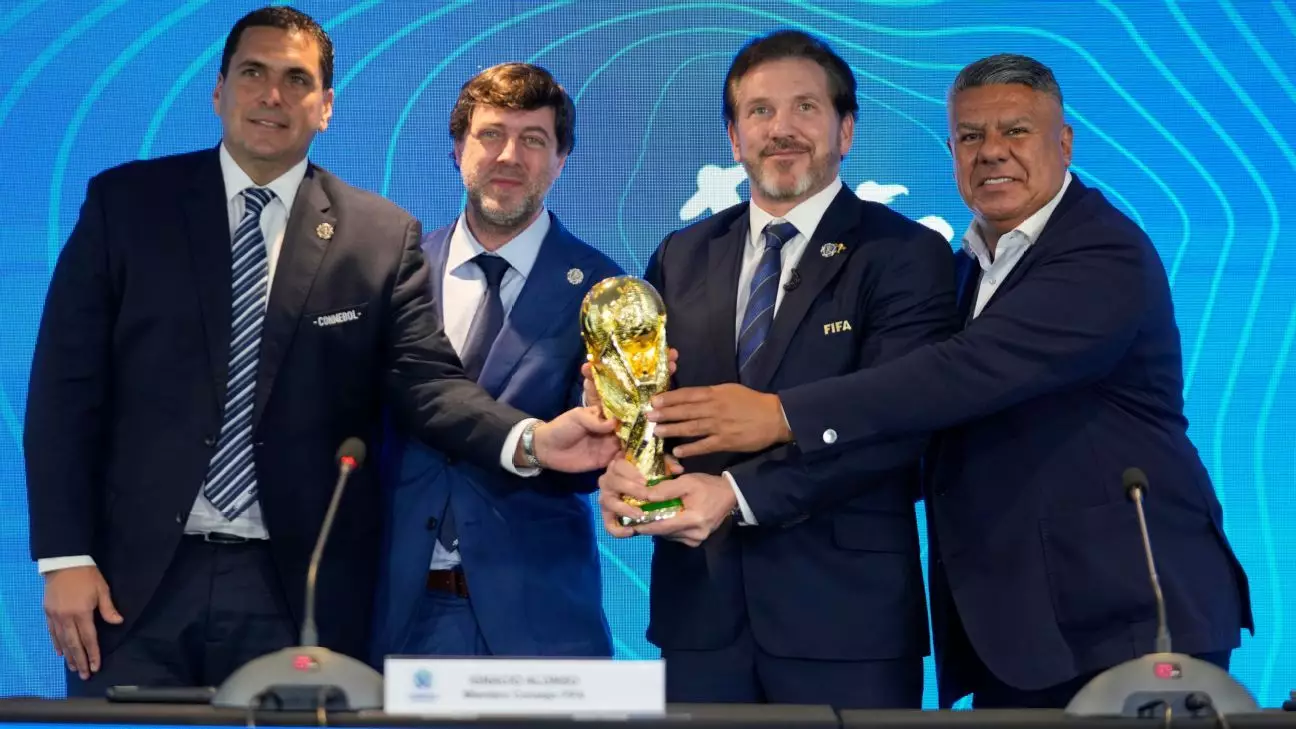The recent push to increase the men’s World Cup roster to 64 teams has stirred up a whirlwind of debate within football’s governing bodies. UEFA president Aleksander Čeferin has voiced his strong opposition to this idea, dubbing it a “bad idea” during UEFA’s annual meeting in Belgrade, Serbia. The proposal emerged unexpectedly during an online FIFA council meeting, catching many off-guard, not least Čeferin himself. This moment underscores the contentious and often haphazard nature of decision-making in the upper echelons of world football.
Financial Gain vs. Quality of Play
The allure of expanding the tournament is undeniable, especially from FIFA president Gianni Infantino, who sees such changes as pathways to increased revenue and broader global development. However, this perspective is fundamentally flawed. Critics argue that flooding the tournament with 16 additional teams would dilute the quality of competition, transforming what should be a showcase of top-tier football into a marathon of mediocrity.
The proposed 128-game format may indeed entice sponsors and generate revenue, yet it risks replacing the high-stakes intensity that makes the tournament captivating. Čeferin’s concerns reflect a sentiment shared by many: More teams do not necessarily equate to better football. In fact, it may lead to matches filled with lackluster performances, further widening the chasm between elite teams and underdogs.
The Impact on Qualifying Rounds
One of the most pressing issues stemming from this expansion proposal concerns the eligibility of teams through the qualification process. UEFA’s proactive approach to reformatting its qualifiers, currently designed for the 2026 World Cup, emphasizes the need for competitive integrity. Adding more slots could not only dilute the prestige of qualifying rounds but also frustrate smaller nations striving for recognition and competitiveness.
By ushering more teams into the World Cup fold, we could inadvertently send the message that success is more accessible rather than earned. This might lead to a dilution of the striving spirit that has historically characterized the smaller nations’ campaigns. As Čeferin noted, this approach could haunt the tournament in terms of both its integrity and allure.
A Complicated World Cup on the Horizon
The buildup to the 2030 World Cup is already complex, given that the event will span three continents. With Uruguay hosting only a single match, the logistics of the tournament have become convoluted enough without adding more teams into the mix. History weighs heavily, particularly since the inaugural tournament took place in Uruguay in 1930. Ironically, the proposal to enhance participation arises at a time when football’s governing bodies should focus on harmony and cohesive celebration of its legacy.
The opaque origins of this proposal further complicate matters. Čeferin expressed skepticism about its genesis, indicating an unsettling lack of communication within FIFA’s ranks. How can we expect cohesive progression in the game when proposals emerge seemingly out of nowhere, lacking transparency and consensus?
What lies ahead for FIFA will demand careful consideration and transparent dialogue among its constituents. As the fate of global football hangs in the balance, it is imperative that decisions reflect both the game’s integrity and the shared values of its community, rather than just financial aspirations.
